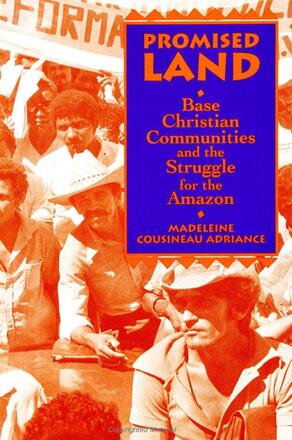
Promised Land
Base Christian Communities and the Struggle for the Amazon
Alternative formats available from:
Examines the relationship between grassroots Catholic Church groups (base Christian communities) and the mobilization of peasant farmers in the fight for control of Amazon lands.
Description
Using information gathered from more than one hundred interviews with farmers, activists, and church people in northern Brazil, the author shows how the present conflicts over land in the Amazon, as well as the destruction of the rainforest, are rooted in specific policies of the Military Government that ruled Brazil from 1964 to 1985, and how the effects of those policies continue to be felt. Presented here are six present-day case studies that not only give evidence of the direct links between peasant farmers' participation in grassroots church groups and their activism for land reform, but also, through rich local detail and quotes from the interviews, give a human face to sociological data.
Madeleine Cousineau Adriance is Associate Professor of Sociology at Mount Ida College.
Reviews
"Promised Land provides first-hand information about a situation where human rights are terribly violated, but which has not been brought to the attention of international media, or readers, or government and religious leaders. The brutal oppression of the peasants is atrocious. This story must be told.
"This book establishes the involvement of religious groups (the comunidades de base) in the movement for land reform and advocacy for human rights, and the manner in which the small communities operate. Some of the literature presents the basic Christian communities as dominated by a Marxist influence; some writers criticize them as simply a transition from religious motivation to political motivation. Adriance establishes that they are political movements motivated deeply by religious commitment. This is an important finding. The complicated relationship to the larger ecclesiastical establishment is very interesting and important. The small communities—explicitly Catholic—function effectively even in situations of opposition by some of the hierarchy. " — Joseph P. Fitzpatrick, Fordham University